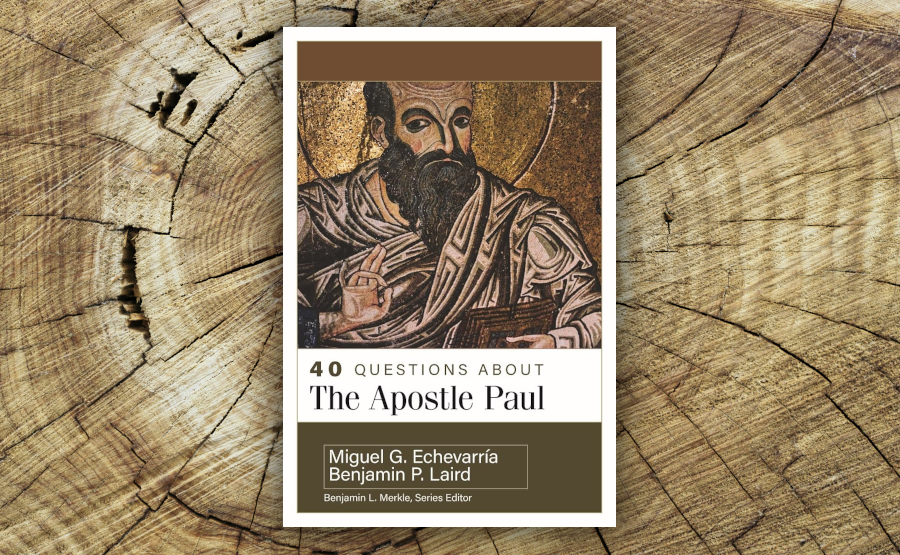“40 Questions About the Apostle Paul” – A Short Review
Image

A review of Benjamin P. Laird & Miguel G. Echevarria, 40 Questions About the Apostle Paul,* Grand Rapids, Kregel, 2023, 319 pages, paperback.
This is another of Kregel’s generally excellent “40 Questions” series, several of which have been reviewed at this blog. The book is divided into three parts: Part One answers questions about the Apostle’s life. Part Two focuses on Paul’s writings, and then Part Three is about Paul’s theology. The first section does a great job of covering the bases of Paul’s life. Here is where this format works really well. The authors provide details about persons and places and institutions (there is even space given to the matter of whether or not Paul had a wife (26-28). I especially liked Question 8 which addressed Paul’s final days and death (71-77). All this forms a great introduction to Paul.
Part Two falls off a bit to my mind because the subjects are more nebulous or at least less easy to be dogmatic about. Topics like the collection of Paul’s letters (Q. 15) or the question of whether he authored Hebrews (Q. 16) did not do much for me, but that is a subjective judgment. However, I thought they tackled the issue of the authenticy particularly well (Qs. 17-18). My only complaint is that the chapters are too short.
Part Three on Paul’s theology starts with one of the books best chapters; “Is there a Center to Paul’s Theology?” (Q. 24). Although I don’t believe, for instance, that “cruciformity” is proposed by Michael Gorman as the center of Pauline theology, he does see it as a crucial missing piece in our understanding of the Christian life (He also holds places of importance for participation and theosis). Similarly, N. T. Wright only argues for “covenant” as a unifying perspective not a center. Despite this I thought this chapter did a lot a debris clearing. I wasn’t as impressed with the next chapter on Paul’s Christology (Q. 25). I think this should have been divided into two chapters, one dealing with the titles of Jesus and the other dealing with the natures of Christ. I understand that there could only be 40 questions, but I think one or two from Part Two could have been spared. Likewise, in Question 29 on the Lord’s Supper I thought the authors did a very good job, but they did not emphasize the New covenant!
Finally, and hardly surprisingly since Echevarria has already given us his position on this, the authors’ inaugurated eschatology cannot avoid the dilemma of supersessionism (their protestations notwithstanding). You cannot take away Israel’s national covenanted promises and say they are fulfilled in the Church of Gentiles and Jews. What this actually ends up doing is absorbing Israel into the Church so that sooner or later Israel no longer exists save as a name for the Church and not the nation to whom it was first given.
This is a good introductory book. It is not outstanding, and there are a few better alternatives to choose from (one thinks of Rediscovering Paul by Capes, Reeves and Richards, and especially James P. Ware’s more sophisticated Paul’s Theology in Context). Still, it is a book to consider if one wants to begin diving into Paul.
*Amazon affiliate link. Purchases help fund Sharper Iron.
Dr Reluctant Articles
Reposted from Dr. Reluctant.
Paul Henebury Bio
Paul Martin Henebury is a native of Manchester, England and a graduate of London Theological Seminary and Tyndale Theological Seminary (MDiv, PhD). He has been a Church-planter, pastor and a professor of Systematic Theology and Apologetics. He was also editor of the Conservative Theological Journal (later Journal of Dispensational Theology). He is now the President of Telos School of Theology.
- 455 views


Discussion